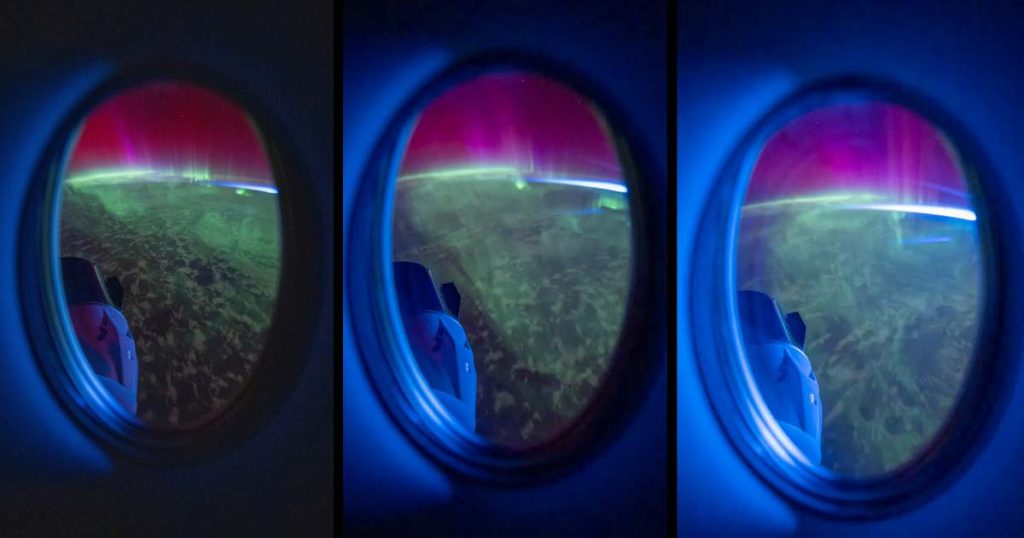
This Timelapse of the Northern Lights Taken From Space Is Utterly Breathtaking (Image Credit: futurism-com)
Dancing Lights
NASA astronaut Matthew Dominick has shared a breathtaking timelapse he took of red and green auroras outside the window of SpaceX’s Endeavour Crew Dragon spacecraft, which is currently docked at the International Space Station.
While clocking in at a brief 11 seconds, the clip shows off a dazzling view of charged particles glowing in magenta and turquoise hues as they enter the Earth’s atmosphere.
Dominick stitched together “a couple thousand images” for the video. While it was taken out of the window of one Crew Dragon spacecraft, a second SpaceX capsule docked at a different port of the ISS can be seen below.
The astronaut traveled to the space station in March as part of SpaceX’s Crew-8 mission. His return journey, which was initially scheduled for October 13, had to be postponed due to Hurricane Milton, which is expected to make landfall in Florida on Wednesday afternoon.
Fortunately for us, his passion for photography has allowed us to get a unique glimpse of the view outside of his window.
Red and green aurora appear to dance in a timelapse as we flyby looking out Dragon Endeavour’s window with Dragon Freedom in view.
We shot a couple thousand images yesterday trying to get the settings, lighting, and framing just right across multiple orbital nights because the… pic.twitter.com/Y3IhlqTNrO
— Matthew Dominick (@dominickmatthew) October 8, 2024
Picking the Window Seat
As the Sun is entering its most active stage of its 11-year cycle, scientists expect it to kick off incredibly powerful solar storms, which can result in huge amounts of plasma being blasted our way.
Auroras are the result of these electrically charged particles colliding with the Earth’s magnetosphere. When colliding with oxygen, they give off rich hues of red and green, while collisions with atmospheric nitrogen result in blues and purples.
Just last week, a powerful X-level solar flare, the second-strongest of the year so far, was powerful enough to cause a radio blackout.
Meanwhile, skygazers back on the surface have themselves been treated to a spectacular light show this week.





